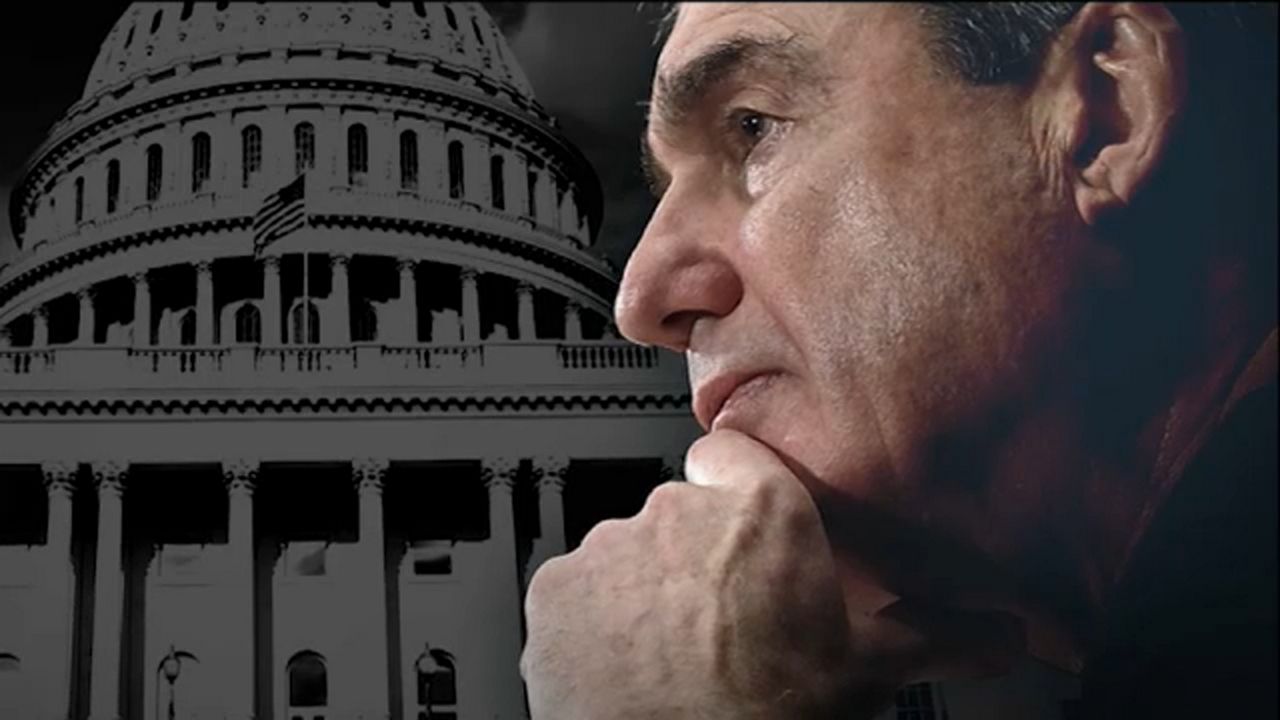WASHINGTON — In the span of 22 months and $25 million, Robert Mueller's team indicted 34 people, netting a handful of guilty pleas from top President Donald Trump associates, including his former personal attorney, campaign manager, and national security adviser.
And now the final report, with many redactions, will be made public.
Attorney General William Barr and Deputy Attorney General Rod Rosenstein will address the media regarding the report on Thursday morning.
Mueller finished the report a few weeks ago and gave it to Attorney General William Barr, who told Congress about its conclusions but didn't originally release the full findings.
Russian Interference and Obstruction
The Mueller Report will be divided into two parts.
The first is election interference. According to the attorney general, Mueller found Russia did attack the 2016 election, but that members of the Trump campaign didn't conspire or coordinate with the Russian government during its interference offensive.
The second part will be on obstruction, which is proving controversial and, consequently, political.
In his summary, Barr states that while his report "does not conclude that the president committed a crime, it also does not exonerate him."
The move caught many by surprise, because it's specifically the job of the Special Counsel to make that determination based on facts and evidence.
According to the attorney general, Mueller lays out evidence on both sides of the obstruction question but stops short of making a decision.
Instead, Barr and Deputy Attorney General Rod Rosenstein concluded that based on their assessment, there wasn’t enough evidence to charge the President with obstruction of justice under federal guidelines.
The full report is expected to contain evidence, legal analysis, and the Special Counsel's own words regarding how the investigation was executed and concluded.
But this first public version of the report isn't the full one. It is redacted – with anything relating to grand jury activity, ongoing investigations, intelligence gathering, and unindicted private third parties blacked out according to a color coded guide.
What Comes Next?
While the report will answer some questions, the political saga is far from over.
Congressional Democrats want to see the entire un-redacted report because they say Barr was a political appointee and has voiced skepticism about the investigation in the past. And they’re prepared to issue a subpoena and wage a court battle to get it.
Barr is due back in Congress in May to testify specifically about the Mueller investigation, and it's more than likely that Mueller himself will appear in front of lawmakers as well.
All while President Trump, who Mueller never interviewed in-person but received written responses from, sets up for re-election for 2020.
Democrats are wondering whether there's information in the report that could prove pivotal.



